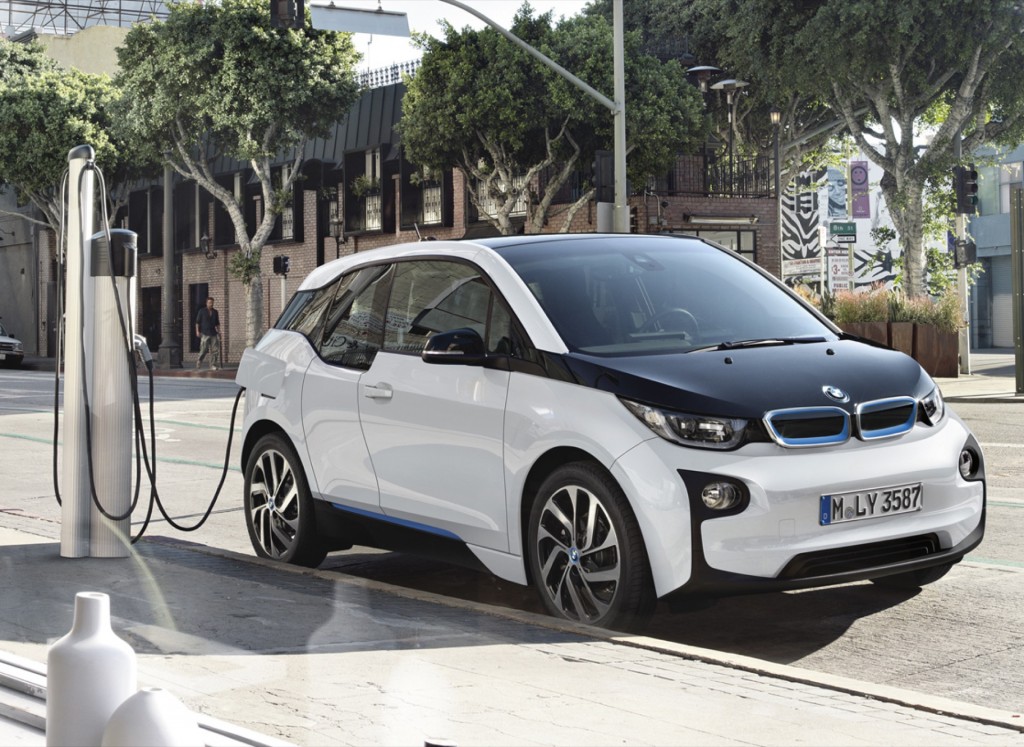Two adjacent European countries are stepping up efforts to improve their public electric-car charging infrastructure.
Initiatives in Germany and Austria should see major improvements to charging networks in a short period of time, as both countries aggressively promote electric cars in an effort to reduce emissions.
Austria hopes to unify what is already a considerable number of public charging stations into a unified network.
DON'T MISS: Germany may miss 2020 emission targets, government report shows (Dec 2016)
Germany is focusing on simply increasing the number of stations, an effort that led to 27-percent growth in public charging stations last year, reports Reuters.
Of the charging stations added last year, 292 were DC fast-charging installations, according to electricity-industry group BDEW.
The group says Germany now has 7,407 public charging stations.

2017 BMW i3
The number of electric cars in Germany also rose 29 percent last year, to 77,153, according to BDEW.
But the country still has a long way to go toward meeting a previously-discussed goal of putting 1 million electric cars on its roads by 2020.
Germany has also committed to reducing its overall carbon emissions 40 percent from 1990 levels by that year.
CHECK OUT: BMW, Ford, Mercedes, VW Group to build electric-car fast-charging network in Europe (Nov 2016)
Austria has had more success with electric-car adoption than Germany, and its infrastructure efforts have shifted to focus on coordination rather than just building more stations.
Beginning in April, major electric utilities will join their charging stations into a unified network totaling 1,300 stations, according to Reuters.
This will allow drivers to sign up with just one of the 11 companies in the network, and use all available stations, similar to "roaming" among cellular-telephone networks.

Volkswagen e-Up electric car with Douglas C54 transport plane at Berlin's Tempelhof Airport
It avoids the inconvenience of holding multiple accounts with different network operators in order to ensure access to all available stations, something U.S. electric-car drivers are all-too familiar with.
Austrian transport minister Joerg Leichtfried hopes to expand the network to 2,000 stations by the end of the year, and 5,000 by 2020, although it may still not encompass all public charging stations in the country.
The charging initiative comes just after purchase incentives that went into effect at the beginning of this month.
Austrians can now get a rebate of up to €4,000 ($4,300) for the purchase of a new electric car.
Austria already has relatively high adoption rates, with electric cars representing a percentage of registrations that is four times as high as in Germany, and three times the European Union average.
Last year alone, electric-car registrations increased by 130 percent, according to Reuters.

Great Drives: Lower Austria
Governments aren't the only entities promoting electric-car charging in Europe.
BMW, Daimler (parent of Mercedes-Benz and Smart), Ford, Audi, and Porsche are collaborating on a network of DC fast-charging stations along Europe's major highways.
They plan to install 400 sites by 2020, with charging at up to 350 kilowatts, eclipsing Tesla's Supercharger stations, which currently run at up to 135 kw.
_______________________________________________












